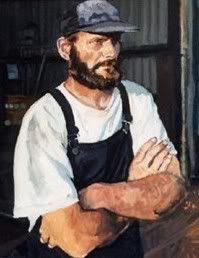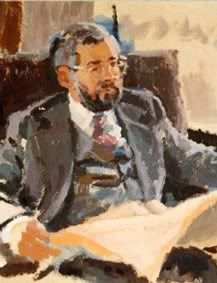Freakonomics vs. The Tipping Point
 I read Freakonomics by Steven Levitt and Stephen Dubner about a month ago. Basically, the authors (or really Levitt, the economist) use economics to discover how normal day-to-day things work, challenging conventional wisdom. It was a short read and very convincing. If you haven't read it, definitely check it out.
I read Freakonomics by Steven Levitt and Stephen Dubner about a month ago. Basically, the authors (or really Levitt, the economist) use economics to discover how normal day-to-day things work, challenging conventional wisdom. It was a short read and very convincing. If you haven't read it, definitely check it out.On the dustjacket of Freakonomics was an endorsement by Malcolm Gladwell, the New Yorker columnist and author of Blink and The Tipping Point:
"Prepare to be dazzled."Serious praise. Anyway, I'd never read any of Gladwell's books when I saw this, but I had read an excellent interview with him by Bill Simmons of ESPN.com. So it was about time that I gave it a shot. I went on to read The Tipping Point.
Both TP and Freco touch on a variety of issues and problems, but they also each have a chapter devoted to understanding the same phenomenon: the huge drop in crime in the early 1990s. And despite Gladwell's glowing praise of Freakonomics, it appears that the two were in enormous disagreement.
Gladwell focuses on New York City, claiming that the precipitous drop in crime was due, in large part, to a revolutionary policing technique borne out of something called the "Broken Windows Theory". The theory got its name from this example from an Atlantic Monthly article by James Q. Wilson and George L. Kelling:
"Consider a building with a few broken windows. If the windows are not repaired, the tendency is for vandals to break a few more windows. Eventually, they may even break into the building, and if it's unoccupied, perhaps become squatters or light fires inside."The idea is that problems should be fixed when they're small to prevent them from snow-balling until they're unmanageable. In a nutshell, Gladwell claims that New York's crime problem dropped in large part because of zero tolerance policies on things like graffiti and fare-jumping. Once criminals realized that their small actions weren't going unpunished, they were less likely to commit more heinous offenses.
In Freco, Levitt studied crime rates across the United States in trying to understand the nationwide fall in crime. He decided that a number of theories were not very helpful in accounting for the enormous drop. He argued that NYC's Broken Windows theory wasn't very significant, as it was only used in NYC, which experienced a similar drop in crime to other large cities across the US . In his mind, the missing link (as much as 40%) of the crime drop is the legalization of abortion approximately 18 years earlier. His claim is that legalized, safe, and inexpensive abortion meant that fewer of the children most prone to violent crime were being born. He says that this is further reinforced by the fact that states legalizing abortion earlier saw their crime rates drop earlier as well, and in the same time frame.
Now, how could Gladwell so enthusiastically praise Freco when it appeared to contradict his precious Broken Windows Theory?
For his answer, read his blog.
I still think Levitt's theory is more interesting/effective when explaining the drop in crime. But maybe it's because Gladwell looks like a fucking loser.




0 Comments:
Post a Comment
<< Home